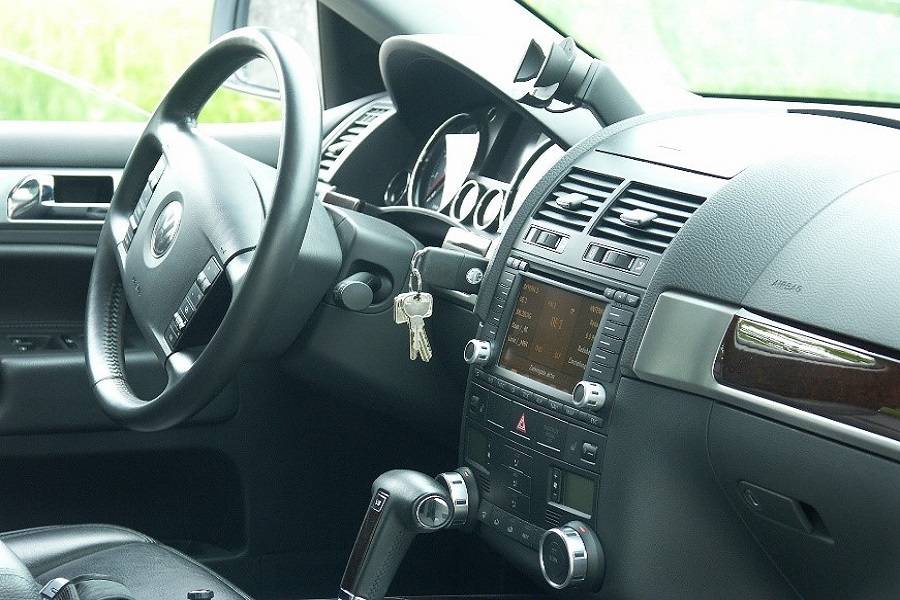What’s your answer when someone asks to borrow your car? You could worry over what happens if he or she causes an accident, but could also feel bad for saying “no.”
Anyone asking you for your car keys is probably someone you know well, either a close friend or a family member. It might be hard to turn them down. Here are a few things to consider as you make your decision.
What Happens If Someone Else Is Driving My Car and Gets in an Accident?
It’s your vehicle and you can lend it to anyone you want. There’s no law preventing you from handing your keys to a friend, but you should be clear on a few things.
 How Much Is Your Settlement Worth?
How Much Is Your Settlement Worth?
Schedule a completely free, no obligation consultation with our team
Schedule Consultation
First of all, there are consequences for you if there’s a car accident. You could mistakenly think that someone driving your car is traveling under the protection of their own auto insurance policy. If there’s an accident, you may feel you’ll bear no liability. Unfortunately, that’s generally not the case.
How Does Insurance Apply when Someone Else Drives Your Car?
In most cases insurance covers a vehicle, not a driver. So, when your friend gets into an accident while using your automobile, your insurance policy will usually get called upon. Your friend’s insurance probably won’t come into play in a minor accident as long as your coverage sufficiently covers the damage.
In an accident involving major damage and injuries, your insurance coverage limits could get exhausted. In that case, your friend’s insurance could also figure into an insurance settlement. Also, keep in mind that you’ll have to pay your insurance deductible if your vehicle or SUV needs repairs as well.
Can I be Held Responsible if a Bad Driver Wrecks My Car?
You’re also expected to show good judgment when you lend your car out. If you knowingly give your keys to a bad driver, you can be found liable for negligent entrustment. Putting your keys in the hands of an unfit, reckless, or incompetent driver can get you in trouble with an insurance company and potentially a jury.
An insurance company can hold you liable in a crash when your car ends up with someone behind the wheel who isn’t old enough to have a license or is a minor who shouldn’t operate a vehicle alone. Drivers who are drunk or are expected to get drunk can leave you responsible for an accident if they are found operating your vehicle.
Lending your car to people who are risky drivers due to their advanced age or a medical condition could also expose you to liability in a crash.
What if Someone Drives my Car to Another State or to Mexico?
Most U.S. auto insurance covers your vehicle no matter what state you travel in, including U.S. territories and Canada.
Request Your Free Consultation
"*" indicates required fields
Mexico isn’t too far away when you live in Los Angeles or anywhere in Southern California. But what happens after your friend caused an accident in your car south of the border? The Mexican government requires tourists to purchase temporary insurance from a provider in the country if they’ll be motoring in Mexico.
Your insurance policy may provide limited coverage for accidents out of the country. It’s important to check with your provider on how your coverage is affected.
Does it Matter if I Lend My Car for Business Use?
A business vehicle is a somewhat similar matter. In a sense, you’re lending your vehicle to someone who works for you. When employees are on the clock and on the road for your company, the liability for an accident will usually fall to your company. The insurance you have for your drivers is involved in any accident settlement.
 How Much Is Your Settlement Worth?
How Much Is Your Settlement Worth?
Schedule a completely free, no obligation consultation with our team
Schedule Consultation
However, when an employee uses a vehicle after hours without your permission, your business likely won’t take a hit after a collision. The driver’s personal insurance would apply.
What to Do Following an Accident Involving Someone Driving Your Car
There are steps you must take after your vehicle is involved in a collision. When you allow someone else to borrow your vehicle, the same process should take place as if you were driving your car.
- They will need to preserve any evidence they have at the scene of the accident. First, they should call the police to create a report. Next, the driver will need to take photos and talk to witnesses, if at all possible. They will also need to collect insurance information from the other driver.
- If they are injured, they will need to get immediate medical treatment. They will need to keep records of any medical treatment they seek following the accident.
Even though you weren’t present when the accident took place, you must still make sure the incident is reported to several agencies:
- Insurance Company: Perhaps you weren’t in your vehicle at the time of an accident, but you’ll remain responsible for alerting your insurance provider.
- Law Enforcement: You’ll have to quickly determine if the accident was responded to by an officer. You should obtain a traffic collision report if a report was taken.
- DMV: When someone is injured or the vehicle damage exceeds $1,000.00 in a collision, you must report the accident to the Department of Motor Vehicles within 10 days. Failure to notify the DMV may result in the suspension of your driver’s license. You can find more helpful guidelines for accident victims on the California Department of Insurance website.
California Statutes of Limitations on Your Injury Claim
The State of California allows victims of car accidents up to two years to file a lawsuit for damages. The countdown to this deadline begins on the day the injury occurred. If the at fault party involves a public entity, then other deadlines will apply.
If you or someone close to you gets injured in an accident, time will play more of a factor than you may think. Two years seems like a long time, but evidence and documents will get harder to gather the longer you wait. Witnesses can also change addresses and become hard to find when you finally need their testimony to prove you weren’t to blame for your crash or your injuries.
Giving your attorney as much of a head start as you can on building a strong case for you is a smart idea. It’s also advantageous to get your claim on the desks of insurance adjusters as soon as you and your attorney are ready. It’s better not to provide them with an excuse to stall and delay responding to your claim.
How Can I Keep My Insurance Premiums Low If I Lend Out My Car?
Different states and different insurance companies handle this question of a “guest driver” differently. When you feel you’ll face a difficult choice over lending out your car in the near future, you should call your insurance representative.
Find out how accidents caused by someone driving your car are handled. Discuss how much your rates will go up if this circumstance ever arises. Also, find out how high your liability coverage goes.
This is the minimum coverage required in California:
- Bodily injury liability: $15,000 for the death or injury of any one person/$30,000 per accident if two or more people are injured
- Property damage liability: $5,000 for damage to the property of other people
You may feel that your current coverage doesn’t offer enough protection, especially if you’re not the only one who will be sliding into the driver’s seat of your vehicle. You can add coverage to protect your assets. Having uninsured motorist bodily injury/underinsured motorist bodily injury coverage on your policy is always a good idea since many drivers that cause accidents do not have sufficient liability limits or sometimes, no insurance at all.
Contact a Los Angeles Car Accident Lawyer
After an injury in a traffic accident suffered by you or a loved one, don’t make any decisions, sign any agreements, or offer insurance adjusters any statements until you talk with a personal injury lawyer in Los Angeles. Those statements can be used to drive down the amount of compensation you receive and can even get brought up to hurt you in a trial.
Contact Allen Vaysberg and the Law Offices of Steers & Associates for a free, no-obligation evaluation of your case. Allen Vaysberg, Esq. manages the personal injury practice of the Law Offices of Steers & Associates. By thoroughly investigating your case Allen and his legal team can determine the best course of action for you and your family.

Allen Vaysberg practices personal injury law and works tirelessly to defeat the tactics of insurance companies and large corporations who try to deny justice and fair compensation to injured people.


